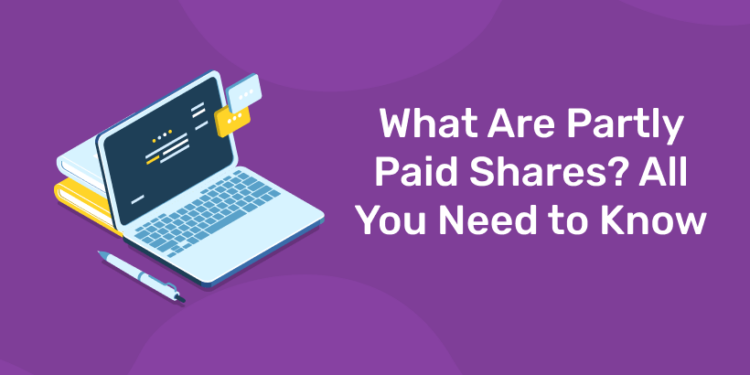Table of Contents
If you are planning to invest in a company then you must definitely understand the working of a partly paid share and you must also take into account the details related to the shareholders of a particular company. They are different types of ways through which the company can issue shares to the shareholders and the shareholders also have some duties and rights that they can perform when they have a stake in a company. There are two ways through which the company will issue shares to the shareholders and this includes partly paid shares and fully issued shares. You can also check out the details related to the phenomenon of selling partly paid shares to other investors. Make sure that you have adequate knowledge before stepping your foot in the stock market.
Click Here For A Crash Course On Stock Exchange
What are Partly Paid Shares?
A partly paid share is the share in a company which is only partially paid as compared to the share which is on a full issue. This means that investors can buy these shares by not paying the full issue price. The balance of the partly paid shares can be made in instalments when the calls are made by the company. For example, if the share is Rupees 100 then a partially paid share will be issued at Rupees 75 or less and then you will have to pay the rest of the balance when the calls are made by the company. The investors can also sell partly paid shares before the call date. You can also trade the partly paid shares in the market. The shares can be paid either fully or partly depending upon the decision made by the company or the investors or the shareholders.
Working of Partly Paid Shares
1: What is a stock?
When the capital is raised from the shareholders, the company often issues shares to them so that they have a stake in the company. The shares can be paid all at once or the shares can be paid partly as per the decisions made by the board of directors of the company. If the shares are fully paid then the company will collect the entire amount of the share value in one go and then they will issue the shares. However, sometimes the company collects money in instalments and this results in partly paid shares. In the case of partly paid shares, the company will fix the timeline for collecting the appropriate share price from the shareholders. If a company is following the partly paid shares phenomenon then the entire amount will not be raised at one particular time.
Buying And Selling Partly Paid Shares
If you are buying partly paid shares then also you can list these shares on the stock exchange for buying or selling and the price will depend upon the company’s fully paid stock price and the amount of the instalment paid. The main advantage of the partly paid shares is the opportunity to buy a company’s stock at a very low price as compared to the full issue price. However, you need to pay the remaining instalment when they are due and if you are not able to pay these instalments before the due date then your shares will be forfeited as per the rules and regulations of the company. When you have successfully paid all of the instalments of the partly paid shares then they will be converted into fully paid shares and you can trade the same shares at the same price. You can sell the partly paid shares at a lower price and then the instalment money will be transferred to the name of the person that you have sold your shares to.
Click Here For A Video Lesson On Stock Market
You must have proper knowledge regarding the full issue shares and the partly paid shares before you are willing to buy stocks of a company. Entri is a public platform which was created for the help of the students who are willing to learn various skills courses available on the internet. You can check out our crush courses specially developed for the people who are setting their foot in the stock market and want to explore this option so that they can continue it as a career in the future. Enrol now and check out the video lessons to start your preparations.












